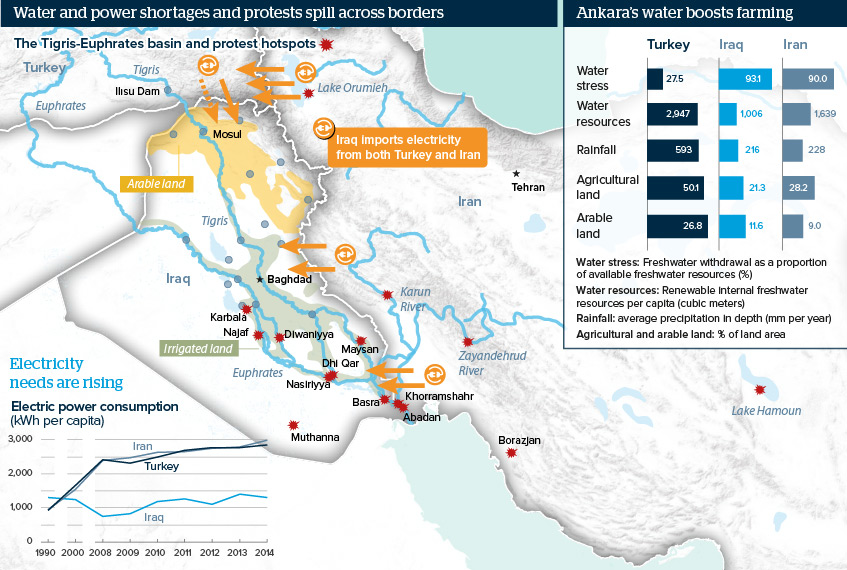Iran-Iraq-Turkey power and water woes will multiply
With shared rivers hit by mismanagement, drought and climate change, irrigation and hydroelectricity face new challenges
Source: World Development Indicators; National Geographic; Turkish Ministry of Energy and Natural Resources; Iran Grid Management Company; media reports; Oxford Analytica
Outlook
Popular protests in Iran and Iraq demanding the two governments address rising water shortages, pollution and endemic power cuts have spiked in the current hot summer months and will increase further. However, limited financial resources, bureaucratic blockages and corruption are likely to limit progress. Further protests are probable.
Anger might also be directed towards dam-building projects and regional neighbours blamed for shortages. As the upstream state, possessing far greater water resources and better infrastructure, Turkey will have an advantage in regional competition.
With climate pressures rising, existing structures of technical cooperation between ministries to facilitate efficient electricity and water sharing could potentially break down, leading to zero-sum outcomes.
Impacts
- Farmers will come under pressure to switch to less water-intensive methods or seek alternative livelihoods.
- Droughts will be more frequent as the climate changes, contributing to rising urbanisation.
- Higher temperatures and population growth will increase demand for electricity, as both hydrocarbons and hydroelectric hit limits.
- Fundamental problems with governance in Baghdad and Tehran will block progress.
See also
- Iraqi protests will fizzle out -- for now - Jul 27, 2018
- Water shortages constrain Iran's economic outlook - Apr 8, 2016
- More graphic analysis
